The NDSS is administered by Diabetes Australia
Menu
- /
- Just diagnosed
Finding out you have type 1 diabetes can come as a shock! You might be feeling surprised, unsure, upset, angry, and confused. And that’s ok. It’s totally normal to feel a rollercoaster of emotions after being diagnosed with diabetes.
Most people never forget the day they found out they had diabetes, and it often takes a while for it all to sink in. It’s common to feel worried about how this will change your life.
It takes time to figure out how to manage diabetes and fit it into your life. But with time, some help and patience, you start to manage it like a pro. Having diabetes won’t stop you living your best life and achieving your dreams.
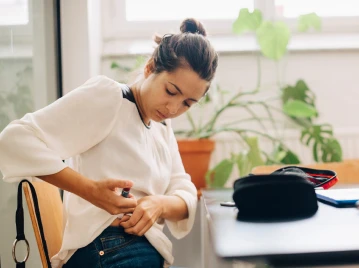
The doctor or diabetes nurse practitioner will start your insulin treatment by injections or a pump.
Insulin works like a key to unlock the cells so glucose can move into your cells. This will stop it from building up in your blood. Your blood glucose levels will be lower, and you’ll start to feel better!
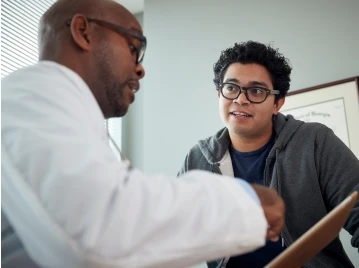
Your diabetes team could be just one or all of these people – doctor, diabetes nurse practitioner, diabetes educator, dietitian and other diabetes health professionals. They’ll help you adjust and learn how to manage diabetes. This website also has lots of information to help you every step of the way!

You and your family will need love and understanding as you adjust to life with diabetes. Be patient, take care of each other and reach out for help if you need it.

You may have already met some diabetes health professionals who explained what diabetes is and how to manage it. It may have all been a blur, so here’s a reminder of the basics.
Type 1 diabetes isn’t related to diet and lifestyle.
These symptoms usually appear quickly, over a few days or weeks and it’s common to end up in the hospital. Once your body gets some insulin, the cell’s doors open, the glucose will go into the cell to be used for energy, and you’ll feel a lot better!
You’ll probably remember the symptoms you had before you were diagnosed with diabetes.
These are some of the common ones:
Feeling moody
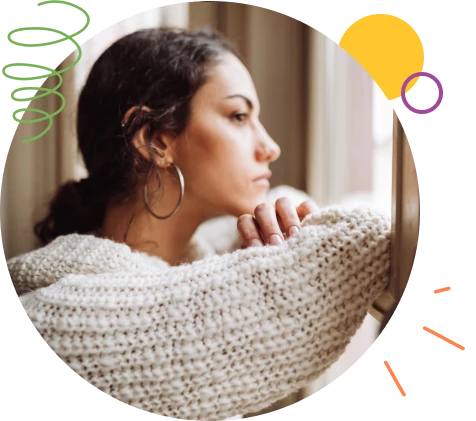
We’re not sure why some people get type 1 diabetes.
Researchers are always looking for new treatments and better ways to manage diabetes, and find a cure one day. Managing diabetes can be tricky, but it’s doable with the right tools and support. Your diabetes team and this website are here to give you the skills and confidence to understand and look after your type 1 diabetes.
The good news is that if you manage type 1 diabetes well, you can achieve your dreams and live a happy, healthy life.
Taking care of type 1 diabetes means using insulin to replace what your body can’t make anymore. You can get insulin from injections or an insulin pump. Your doctor, diabetes nurse practitioner or diabetes educator will help you figure out the best kind of insulin for you and how often you need it.
Besides using insulin, you’ll need to check your blood glucose levels often and learn to balance insulin, food, and exercise. Doing this every day helps keep your blood glucose levels where they should be. This keeps you feeling good now and lowers your chances of getting health problems later on.
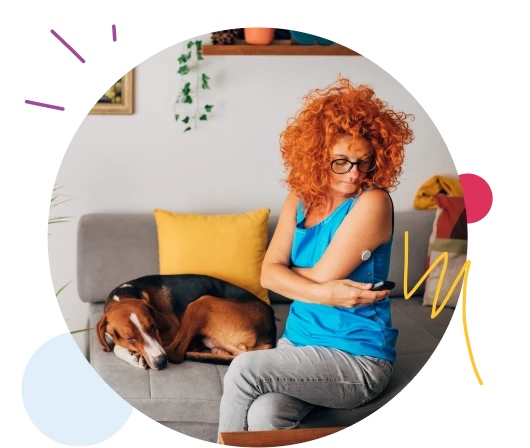
Your diabetes health professionals will help you:
Learn how to use insulin
Learn how to give insulin by injections or an insulin pump.
Monitor your blood glucose level
Learn how and when to monitor, and how use the the results to manage your diabetes.
Understand low blood glucose levels
Learn how to reduce the risk and manage low blood glucose levels (hypos).
Learn how to balance
Learn how to balance food, insulin and blood glucose levels.
What to eat
Plan meals and snacks around physical activity.
Count carbs
Learn how to count carbs in a healthy way.
Manage sickness
Make your sick day action plan, so you know what to do if you’re unwell or not able to eat.
Fit diabetes into your life
So you can play sports, go to school, go to parties and live your best life.
Being told you have diabetes can be a tough time for you and your whole family. Everything might seem strange and confusing, and you might have lots of different feelings. That’s totally normal!:

Shock
It might feel like everything is happening in slow motion, and it’s hard to believe the news.
Denial
The news is so big that you might think there’s been a mistake like the test results are wrong. When you don’t quite believe it, you might not want to do injections or finger pricks.
Anger
You might want to blame someone, like the doctor or your family, and wonder why this happened to you.
Saddness or depression
You might feel really sad or even depressed because life seems more complicated now.
Fear
As you find out more about diabetes, some of these fears might go away.
Guilt
You might feel guilty and wonder if there’s something you could have done differently. But remember, there’s nothing you could have done to prevent diabetes.
Coping with the emotional waves after a diabetes diagnosis is important for your overall wellbeing. Adjusting to life with diabetes is an ongoing journey, and it’s super important to take care of yourself. These are some of the things others have found helpful:

Get to know the basics of diabetes – it’s the first step towards living your best life with diabetes. Take it slow and learn at your own pace. Your diabetes health professionals, this website and NDSS programs and services are a great place to start.
Check out the different pages within the diabetes youth zone. They are there for you to access anytime and to support you and your understanding of type 1 diabetes.

Other young people who have had diabetes for a while understand what it’s like and know a few tricks to make life easier. Sometimes just talking with people who get what you’re going through can help.
Go to the JRDF website to find out more about their support groups.

Make a diabetes plan, including how you’re feeling. Share it with your family and friends and your diabetes team. Gather information, connect with others living with diabetes, and plan for exercise and fun activities.

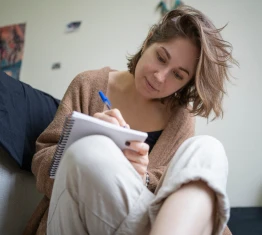

Don’t go it alone! Share your feelings with family and friends. Managing diabetes is a big deal, and they’ll want to support you in any way they can.
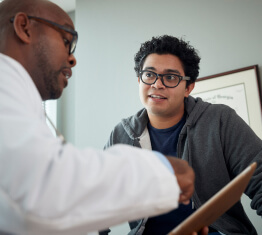
Talk to a psychologist familiar with diabetes if managing diabetes feels like too much. They can help you find ways to adjust to the changes in your life. Ask your diabetes health professionals if they know any psychologists who are good for helping young people with diabetes, or check out the Australian Psychological Society website at psychology.org.au.

Taking care of diabetes is a team effort with you, your family, friends, classmates, and diabetes health professionals.
General practitioner (GP)
Diabetes expert doctor (endocrinologist)
Children’s doctor (paediatrician)
Diabetes educator or diabetes nurse practitioner
Food expert (dietitian)
Eye expert (optometrist)
Eye doctor (ophthalmologist)
Exercise expert (exercise physiologist)
Foot expert (podiatrist)
Counsellor, social worker, or psychologist